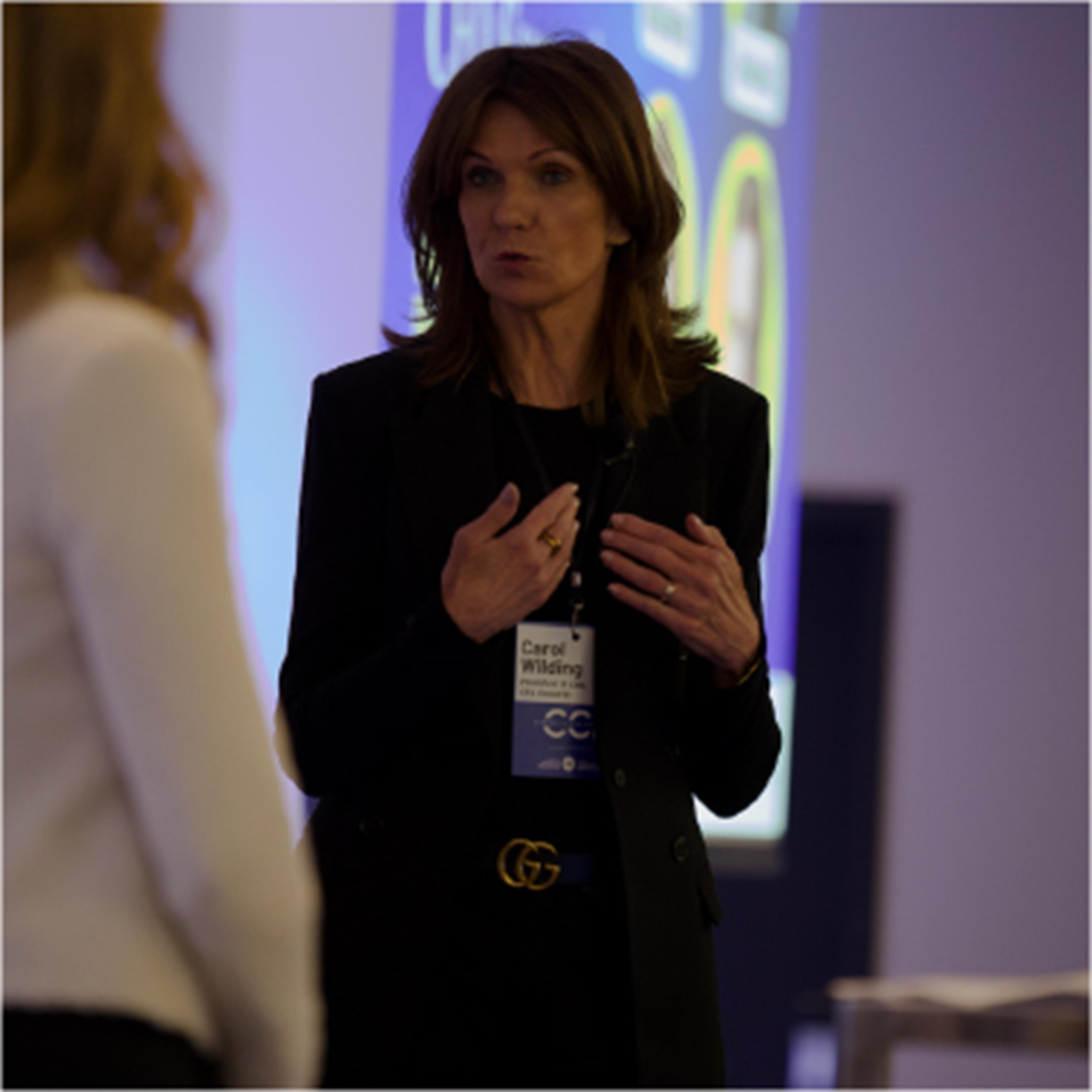
Cautious Optimism: What We Heard at The Council of Canadian Innovators CEO Summit
From raising capital to a changing policy environment, the last few years have been a challenging time for Canada’s innovation sector. But at this year’s Council of Canadian Innovators CEO Summit, there was a note of cautious optimism, with a feeling that there are exciting opportunities on the horizon for Canadian innovators, but only if they take a strategic approach to those opportunities.
CPA Ontario President & CEO Carol Wilding, FCPA, FCA, ICD.D. joined Jim Balsillie, FCPA, FCA, founder of the Council of Canadian Innovators, John Medland, CFA of Scotiabank and Natalie Raffoul of Brion Raffoul LPP to open the summit with a kitchen table discussion on “Navigating Economic Uncertainty in the Era of Intangibles.”
The discussion focused on Canada’s ongoing productivity crisis, the role that intellectual property and intangibles will play in reversing that trend, and how controllership and governance can provide trust and confidence for companies looking to scale-up during a time of uncertainty.
Brice Scheschuk, CPA, CA, and Managing Partner at Globalive Capital, and Sanjay Dhawan, CPA, CA, and CEO of Trivium Advisory Inc., two of the instructors from the first Innovation Leadership Accelerator program, offered their thoughts on the summit.
“I thought that bringing in speakers from the outer fringes of the innovation space brought a fresher perspective to the issues being discussed and added a lot to the conversation,” said Sanjay.
“2023 was a very unpleasant period due to the macroeconomic backdrop,” said Brice. “There was a lot of ugliness, and a lot of firms are still licking their wounds. But now that rates are going down, and there a clear signals of further rate cuts on the horizon, many founders are starting to see the other side of it.”
That sentiment of cautious optimism was echoed in the recently released KPMG CEO Outlook. Almost 60% of surveyed Canadian CEOs say economic uncertainty is their biggest challenge. At the same time, many CEOs are confident in their own firms, and are looking for ways to improve productivity and take advantage of new technologies, like generative AI.
One of the major themes of the Summit this year was AI and its growing impact on businesses of all stages, and on the economy.
“You can’t open a press publication without reading fifteen articles on AI,” Brice said. “So no conference of this nature is going to get away without having an AI narrative.”
“But the conference did an excellent job of talking about AI in a way that was much more practical, and grounded in how these CEOs are experiencing AI in their day to day. There was a very ‘culturally Canadian’ lens to the discussion.”
“We all read the same industry journals and commentary as we are so busy with our day-to-day. This rushed ingestion of information and opinions can somewhat narrow our perspective of the innovation world around us. This event was a fantastic opportunity to discuss and listen to others on similar topics du jour and challenge those shaped perspectives, as well as influence others”, added Sanjay.
Founders and CEOs are reacting to the market, using AI tools and innovating where they can. They are adding it to their businesses in the smartest way possible, but they are also watching how the legislative and regulatory environment will continue to evolve.
“Artificial intelligence is all about software and data, which is transferable. On the policy side, there was a consensus in the room that we are focused on many of the wrong things on the policy level.”
“If too many restraints are placed on operators, they will go elsewhere,” cautioned Brice.
Access to capital continued to be a topic of conversation at this year’s summit as it has in year’s past. Brice had the opportunity to participate in a breakout session where he heard from founders representing organizations in different sectors with experience in the trenches of raising capital. Each one brought their own unique experiences, including their unique challenges to the table.
From firms that have successfully bootstrapped their businesses from the ground up to firms that found their product market fit disrupted due to COVID, the conversations reiterated for Brice that every stage of the start-up requires a different set of metrics, milestones and skills.
It’s about keeping their eye on the prize, not just the next funding round.
“The breakout sessions really reinforced for me how foundational capital is and how consequential and irreversible the nature of your capital path is,” Brice added. “Founders need to play their own game and own their own capital path.”
That means, from co-founder equity to venture capital to angel investors for private equity, each founder needs to find the right capital mix that works for their venture at their stage. For CPAs, the Summit reinforced how important programs that build foundational knowledge on start-ups and scale-ups, like the Innovation Leadership Accelerator, are for any CPAs looking to take on a leadership role.
“Every conversation and interaction had value. It was an intense and incredibly valuable time. I used the opportunity to test some thinking about to an approach to the ILA content as we prepare for the next cohort," said Sanjay.
“To survive in the world today, the innovation and entrepreneurial mindset are the table stakes,” said Brice. “It’s all about the mindset - iterating, learning, curiosity, and obsession. That is what we are training CPAs for.”


